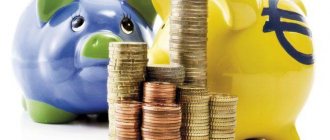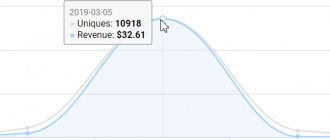You must have a trading advantage
You may have heard the phrase: “Trading is 80% psychology.” However, it doesn't matter how good your trading psychology is or how well you manage your risks. Because without a trading advantage, none of this matters.
Go to the casino, take your best psychologist and mathematician with you. Play with smart risk management. It doesn't take long for you to start losing. Obviously, you don't stand a chance in a casino because you don't have a statistical advantage there.
The same is true for trading. Therefore, if you want to understand how to make money from trading, find a trading strategy that will give you a trading edge.
You increase your chances of becoming a profitable trader
Based on a survey of 500 traders, I realized that many of them faced the following problems:
- Lack of trading capital.
- The “need to make money” syndrome.
Part-time trading does not require much time. Therefore, you can keep your regular job and gradually increase your capital. This means you can use your earnings from your job to increase equity in your trading account.
In my opinion, this is the secret to making profits with low risk.
The “need to make money” syndrome often causes you to break the rules of your trading. For example, you move your stop loss, trade for revenge, or average out your positions to simply avoid losses. You expect profits and do everything possible to prevent losses.
But if you have a regular job, you will always have a stable source of income and you won't have to worry so much about money. Even if you have a drawdown for a few months, it is not the end because your job will provide all your life needs.
This means you can focus on learning to trade and not worry about whether you can pay your bills. Won't this help you become a profitable trader in no time?
How much do traders earn?
Let's move on to the question for which you are reading this article. How much do most traders earn? From 0 to 100 million dollars.
All traders have different capitals. Some people trade with 1 million rubles, and others with 10 million dollars. And the difference in income is corresponding. That is why I will talk about profit as a percentage. It's more honest.
Beginners
People who have been working in financial markets for a long time say that newcomers can only lose money. And at the expense of those who just come and don’t know how to do anything yet, the whole system lives. I don’t know how much truth there is in these words, but here is one illustrative story:
Four years ago I did an internship at a bank. And there were three employees who were involved in playing on the stock exchange. Two of them were newbies, with only a couple of months of experience behind them. The third one is about a year old. The first ones told me the following: we are just losing money, gaining experience, some skills. At that time, out of a deposit of 60 thousand, they lost 10 and 15 each. The third played for a year, and he had already reached the break-even point without losing money. But without making money either.
And there is another revealing statistic: 90% of all stock traders lose their deposit in the first year. About a third of these people do not return. And only 10% can reach the level where the first income appears. In Russia, due to low literacy and widespread advertising, which attracts freebie lovers, the number of successful traders is much lower. Only 3-4 people out of 100 can count on something more than draining their account.
Forex trading is not a good idea for beginners. The world's most successful trades have taken place in the currency markets, this is true. But the number of unsuccessful decisions is several thousand times greater.
Lovers
I call amateurs those who have already passed the break-even period and systematically make a profit. Players achieve this in a year, two, three or five years. It all depends on how quickly a person learns, what he knew before joining trading and how he trades.
Traders who have already gained experience and can make a profit receive 2-5% profit per month.
Forex traders who take large risks can achieve returns of 100-500% per annum. This can be seen in the example of PAMM accounts, where 100% is a conservative strategy, and 500% is very risky. But it doesn't always work that way. In a few years, because of two or three mistakes, you can lose your entire account and be left out of business. There are many such examples.
Traders with good capital of 5-10 million rubles can count on 100-500 thousand rubles in net profit. This requires a lot of capital, good experience or a mentor. Only after this can we say that you will earn big money and experience all the advantages of trading for yourself. Until then, you will have to limit yourself to only the negatives.
Professionals
Professionals differ from amateurs in that they are responsible not only for their own capital. Investors, businessmen or simply people who need advice come to them and transfer their money to management. Typically these are separate funds managed by one well-known trader.
The world's top investment funds cannot boast annual returns above 20%. Rarely, during periods of crisis and brilliant management decisions, one can see 30-35% in reports. But these are one-time promotions that happen once every 10 years.
Due to the fact that top traders manage more than just their own money, they have noticeably less income. All because of the risks. The best funds try to invest only in those instruments whose operation they understand and cannot fail. And any risky decision must be justified.
Professional traders make 1.5-2% profit per month on their trades. At the same time, they increase the assets of those who trust them.
You need money to make money
Obviously, you will need some initial capital to make money in trading. Let's say you earn an average of 20% per year.
- For a deposit of $1000, that’s $200 per year.
- For a deposit of $100,000, this is $20,000 per year.
- For a deposit of $1 million, that’s $200,000 per year.
You may say that 20% per year is too little, and you can make 100% per year in trading. Of course, this is possible, but the risks here will be much higher. At the same time, we are talking about stable income from year to year, and not about random profits, which may be followed by serious losses.
Think about it, why do hedge funds accumulate so much money and have such low returns? They need a lot of money to earn as consistently as possible and with the lowest risks possible. You know that the richest traders in the world have started their own hedge funds that have raised millions (if not billions) of dollars.
Is it really possible to make money on Forex?
According to statistics, only 5% of people who come to trading make a profit.
When I was still undergoing training, our teachers immediately said that it is not difficult to make 20% profit in a month. Even for a beginner. Many people do this. It’s difficult to get a stable profit and not lose all your invested funds. The two most common reasons for losing a deposit are lack of strategy and problems with discipline. Attempts to “guess intuitively” always end sadly in the long run. The second point is that a person just comes into this area, concludes several profitable transactions and that’s it - he develops a false confidence that he has understood everything. After this, all the principles of risk management go down the drain, and trades begin to be entered for some unknown reason (“it seemed to me”). In my memory, there were several situations when friends increased the deposit 10 times, relatively speaking, in a couple of months, and then lost this money in a week.
Yuri R., investor, financier
Psychologists, discussing whether it is possible to make money on Forex, talk about a certain duality that needs to be taken into account.
Here we get a fork. Some people immediately want to make this a source of income. As a result, people take out loans, transfer their last money... and lose it because they have no experience. And some people perceive trading as a possible source of additional income. This is the correct position at first. But it often leads to the fact that a person begins to take this very topic lightly. He learns in fits and starts, and trades in fits and starts. And this is work. Not roulette. Not gambling. It's a job like any other. Think about it: would a person who studies an anatomical atlas a page a week make a good doctor?
Elena M., psychologist, consultant
In the question of whether it is possible to make money on Forex, the problem of fraud is no less acute.
There are about 10 really decent brokers in all of Russia. And hundreds of scammers who tout, promising countless profits almost at the press of one button. And there is such a powerful processing, they put pressure on everything - fears, fatigue from lack of money. People believe and tell the deceivers the last thing. And then reviews appear on the Internet that Forex is a scam and it is not possible to make money on it.
Maxim M., trader, manager
Even with the best trading strategy, you could be losing money
No, this has nothing to do with your risk management or discipline.
First, let's look at an example. Let's say you have a trading account with $5,000. You earn an average of $2,000 per year from day trading. But that's not the amount you take home because you don't factor in commissions.
Let's say your round-trip commission (buying and selling) is $4 and you make 100 trades per year. In total, you pay $3,000 per year in commissions. Let's count:
You make $2,000 in profit and pay $3,000 in commission. What result? You have lost $1000 dollars in a year. But what if you reduced the commission to $1? Now you make $2000 in profit and pay $1000 in commissions - and you are already a profitable trader!
Do you now understand how deadly commissions can be? Most traders neglect commissions and simply trade with whatever broker they come across. But math doesn't lie. If you pay high commissions, your yield curve will not be high.
Why can't you make money?
Perhaps because you haven't tried to make money here.
Most people do it differently. You open a starting deposit and begin to plunge headlong into the world of numbers, graphs, analytics and plans for a bright future. The euphoria wears off within a few days, and the initial deposit remains either pitiful crumbs or the sad number “0”.
Every newbie goes through this. After all, you can’t take $10 and try to make a fortune of several hundred thousand dollars in a couple of evenings. You must understand that a larger portfolio gives you greater opportunities. But it also carries greater risks.
Trading requires tough endurance , otherwise you risk being included in the list of these guys:
Nick Leeson . This guy managed to bankrupt the English bank Barings, whose history went back over 230 years. Leeson traded futures on the Nikkei index. The large position and constant borrowing from the bank resulted in the bank's reserves being exceeded.
Losses: $1.3 billion.
Jerome Kervel . A trader from France who managed to bring losses to the Societe General bank (where he worked) in the amount of $6 billion. Jerome managed to bypass the accounting and control system by making illegal transactions. But “something went wrong” and the mistake cost the trader everything.
Losses: $6 billion.
Yasu Hamanaka . The trader is known as "Mr. Copper" because he was a metal trader at Sumitomo. By artificially inflating prices through the London Metal Exchange, Yasu raised impressive sums. But at one point copper collapsed, Hamanaka was accused of fraud and the trader lost several billion dollars.
Losses : about $5 billion.
Toshihide Iguchi . The 30,000 unauthorized trades that Toshihide worked on for 11 years resulted in significant losses. Iguchi was sentenced to four years in prison, and after his release he wrote several books, including the bestseller My Multi-Billion Dollar Education.
Losses of $1.1 billion.
“Draining the deposit” is a mandatory stage that any, even the most successful, trader goes through. It is impossible to get your way to a “place in the sun” without losing your initial starting capital.
At the initial stage of trading, absolutely everything is lost . This is an axiom.
But why then do traders not stop trading?
Trading is just a delicate thing. Let's take simple and banal statistics. Of the 5,000 people who will read this post, only a small part will try to start trading right now. And that's why:
- trading is a complete scam;
- I don’t have start-up capital;
- I’m not good with numbers, mathematics and analytics are alien to me;
- Where are the guarantees that I work with real data and quotes?
Out of 5000, there will be 100 who try, and only one will be successful. These are realities.
Exchanges do not tolerate “it’s about to happen”, “I’m lucky”, “well, let’s go down” - and this situation immediately leads to the rapid depletion of the deposit.
A successful trader is a person who is in control of himself and has complete control over his emotions. Composure in financial transactions is the main key to success. And it is composure that a newcomer lacks.
Real trading price
If you make $5,000 a year from trading, are you really making $5,000?
If you previously had a job that paid you $10,000 a year, then you didn't earn $5,000. Instead, you lost $5,000. If you don't trade, you can work somewhere else and earn $10,000 instead of $5,000. A potential loss of $5,000 is an additional cost to you.
So ask yourself, how much could you earn if you weren't trading?
How to make a profit every day?
What is needed for this? Best trading strategy? Risk to reward ratio? Profitable trade ratio? No. Want to know the secret? In reality, it is the frequency of your trades.
If you want to make money every day, you must have a high frequency of trades. The law of large numbers should work in your favor.
Imagine that you have a special coin in your hands. If it comes up heads, you get $2. If it's tails, you lose $1. However, you can only toss a coin once a day. Do you think you can make money every day? Of course not.
Why? Because in the short term, your coin toss results will be random - you can get losses many times in a row.
However, if you could flip your coin 1000 times a day, how would the outcome change? Now you'll roughly get about 50% heads and 50% tails after 1000 flips - meaning you're guaranteed to make money every day.
So the point here is not your win rate or risk to reward ratio, but your trading frequency. This concept also applies to trading. If you want to make money every day, you must have a high frequency of trades. But is this possible for a retail trader?
In my opinion, the odds are absolutely against us here. Short-term trading is dominated by high-frequency robotic strategies, and only they have a chance. Read about the hedge fund Virtu Financial, which had only 1 losing day in 1238 days - https://www.businessinsider.com/virtu-hft-only-one-losing-day-2014-3?IR=T.
If you have a statistical advantage in the market and have a higher frequency of trades, your advantage may end within a shorter period of time. If you have a lower trade frequency, it may take longer for your statistical advantage to be realized. However, you will be able to accumulate income over time, experience less stress, and have the freedom to do what you love.
For most retail traders who trade manually, this means that you will not be able to make money trading every day. However, this does not mean that you cannot remain in the black every month or every year.
How do traders make money?
A trader is a controversial profession. Many people have a stereotype of a “speculator”. There's nothing wrong with that though. A trader buys securities, commodities or currencies cheaply and then sells them at a high price. It's simple. But behind this simplicity there are many pitfalls.
Let's separate two important concepts. A trader is a person who resells securities or other assets. And the investor invests his money in order to make a profit in the long term.
An investor can be a trader when an asset is overvalued, undervalued, or a profitable short-term trade is in sight. All of these are situations in which a competent investor can buy a security and then sell it when the price rises. But a trader cannot be an investor. Simply because as soon as the trader fixes a position in which the security will bring him a profit, he sells it.
Trading has its pros and cons. Let's talk about the positive aspects:
- High incomes.
- Mobility.
- No ceiling.
There are more disadvantages, and for a beginner they will be more significant:
- High risks.
- The need to control emotions.
- Inevitable mistakes.
- High barrier to entry into the profession.
Plus, each trader takes on certain technical risks. The broker with whom he constantly traded may close and leave him without a platform and tools. And if this is modern Forex, then, in general, disappear along with the money. Trading terminals are not perfect, and you have to pay for mistakes, especially in short-term trading.
The situation with bank brokers is not much better. They are truly more stable, more interesting and reliable. But you have to pay for them. And traders feel these small commissions much more than investors.
Trading is not the easy and beautiful life as advertised. This is constant tension, playing against your emotions and enormous work in order to achieve some income.
How to make money from trading and do nothing?
If I tell you that there is a guaranteed way to make money from trading and ensure your place in the top 10% of profitable traders? You won’t need much time for this and in just a week you will see the result. Moreover, this is an absolutely risk-free method that does not require any effort from you. You do not believe? Or do you think that this looks like a marketing text with the goal of selling some kind of trading system or advisor?
If this sounds too good to be true, I can assure you that it is not. To ensure your place among the best traders, you simply need to do nothing. Relax and forget about the “buy” or “sell” buttons on your trading platform.
The logic here is simple: if 90% of traders lose money on a regular basis, then doing nothing for a week or even a month will give you the opportunity to get into the top 10% of successful traders.
You're probably thinking: Sure, I won't lose money by doing nothing, but I won't make any money either. And you are absolutely right. This method is not a working strategy. And it’s not even a strategy at all. This is a way to understand how productive and useful inactivity can be in trading.
How to lose 5 years of your life trading
Having turned the Forex industry , I now want to take on trading to save you from headaches once and for all:
How to make money by trading in financial markets? Who to learn trading from?
The thing is that I began to receive a lot of questions that one way or another convey the meaning of the two above. It’s understandable, they find my blog because it is dedicated specifically to the topic of investment and trading . Well... sit back, because I'm going to tell you the truth in more than a few words.
Is trading a dream profession?
When people hear about trading, the stock exchange, stocks and quotes, a picture of The Wolf of Wall Street . Big money, parties, expensive cars and luxury houses. Immaculate suits, beauties in the office... well, what else can you come up with that is typical? In a word: romanticism , inspired by literature and cinema.
This image was so firmly planted in our heads that it became a kind of cult . Faith in a bright future, a sense of financial independence, an unlimited source of income. But an adult must understand that the marketing picture has nothing to do with reality . Trading will most likely shatter your dreams, your personality, your nerves and your budget. Without exaggeration.
Look at the stubborn statistics. At least 95% of those who start trading end up losing money. Every now and again. Year after year. Especially if they are trying to curb some binary options or forex . Do you really think that you are the chosen one and will be included in the 5% of earning traders in the world? May be. May be.
I think you understand, there is no easy money to be found here . Forget about the rosy world that is painted by marketers and scammers. You will need discipline, training and hard work . And in such a quantity and quality that would exceed the parameters of 95% of all other market participants - your competitors. Don't forget, you're taking other people's money. If someone earns, then someone loses. In financial markets, money flows from one pocket to another.
I also observe the following problem: we all understand that without proper education and experience we cannot sit at the controls of a passenger plane, but anyone can start trading. From small to great: age, finances, knowledge - do not play a role .
And it turns out that people do not properly assess their own abilities . Everyone seems to be able to overcome habits of acting and thinking as if they know something that others do not know. Such amateurism leads to ruin . But all the pain lies elsewhere...
The financial result in trading does not directly depend on the efforts made and the knowledge gained. Re-read.
Let me explain.
Specifics of trading as an activity
To make everything fall into place, I propose to analyze two types of activities: washing dishes and trading. Please note that earn money in one way or another.
When you wash dishes, you understand the tools, the algorithm of actions and the final goal . You need to take a sponge and scrape off the remaining food under running water until the dishes are clean - this is your success. Even a child can master the instrument, follow a clear algorithm of actions and achieve success.
With trading, things are more complicated. Much more difficult . Two additional factors come into play: probabilities and risks . This radically changes the essence of the activity. It is impossible to measure probability in markets because assets are influenced by so many factors. There is no strict probability, as in the math problem about white and black balls.
You are entering an area where you need to operate with probabilities, but you cannot calculate them accurately . Only offhand, using various hypothesis tests on historical data of the asset price. If you are already stuck on this paragraph, feel free to close the article and never engage in trading.
Moreover, in uncertainty there are always risks . This means that losing money and making mistakes are part and parcel of the business. It is impossible to make a mistake when washing a plate with a sponge - the plate will either be clean or dirty. In trading, using the same tools and algorithm of actions, you will earn money today and lose tomorrow .
You need to agree and accept that in trading “A” does not lead to “B”. Only some probability with a mandatory condition in the form of risk.
If you sit in front of your monitors not for 2 hours, but for 8, if you read not 1 news source, but 5, if you make not 1 trade a day, but 3, this does not mean at all that you will earn more. Forget about linearity that leads to results.
How to waste 5 years of your life in trading
I work in a brokerage company, and in my memory there are many stories related to the manifestation of minor mental disorders. I know of 6 particularly severe cases. But why am I doing this...
Take a very close look at the price chart of the largest company in Russia.
Now let’s reveal the cards: this chart was created using a random number generator and has nothing to do with asset prices. Gotcha? Not scary. Much worse is the following:
In trading, there are more than a thousand methods for analyzing prices . Using these methods, traders try to beat other market participants, believing that their approach is individual and unique. They look for patterns where there may not be any .
Give this randomly generated chart to any trader, and he will find you various levels of support and resistance, reversal and continuation patterns, and also the Fibonacci golden ratio. Particularly sophisticated ones use their own super secret developments that can predict price movements with 100% probability. Who has enough imagination for what? Here the saying is more relevant than ever: whoever hurts...
You need to understand one thing: when developing a new theory, you are not engaged in highly intellectual analytical work, you are wasting your life.
When a person is face to face with the price chart, all the “cockroaches” appear in him. He tries to transfer his vision of the world , considering the market to be a living being. How long can this go on? For decades.
The result is known: loss of money . Not because the person is stupid, but because he is doing useless work. He uses dubious tools, has no clear plan of action and, of course, has a complete lack of competence. Let's add passion and greed to this. And you don’t need to tell me that you are not a gambling person.
He uses dubious tools, has no clear plan of action and, of course, has a complete lack of competence. Let's add passion and greed to this. And you don’t need to tell me that you are not a gambling person.
At times, a trader will make money on such a randomly generated chart. “Oh look, my hypothesis works! I know where the price will move. Wall Street, hold on!” But most of the time the trader will lose money due to lack of self-discipline and other psychological problems, not to mention the costs in the form of broker commissions.
I’m no longer surprised when a client burdens me with yet another revelation of a market conspiracy. This is the game he wants to play. Any attempt to convince a person turns into fierce debate about the philosophy of life.
Myths and misconceptions
I will list the main thinking traps with which beginners come to the market and see in trading a magic pill that can instantly make them rich and successful, whatever that means. Thus, I will smoothly summarize .
Traders are rich people. Take a look at the Forbes list and look for people who have made a fortune from trading. Precisely in trading. I assure you, you will not find a single trader in the top 10. In the top 100... Maybe 1. I speak with confidence, even without checking the top 100 myself. No palm trees, hammocks, rides or parties. Work and only work.
But there is another limitation here. Even if by some miracle you have been earning money for 10 years and constantly outperforming the index, you will be faced with the fact that your capital has grown and therefore you need to increase the volume of transactions. But the volumes that appear on the instrument where you are trading are not rubber. Either you will always have a worse execution price (and, as a result, a deviation from the trading strategy), or you will not be able to earn in proportion to the invested capital.
Knowledge and experience are directly converted into earnings in the market. Unfortunately, I have already explained why this is not so. You can disagree, the main thing is that you don’t put yourself at a disadvantage. Studying the news, developing complex theories and reading clever foreign books will not help you.
Trading is for everyone. A deep misconception due to which brokers and other market participants cut their profits. Trading is not for anyone. Only for some individuals as an exception. If you have money for trading, don’t even start, give it to charity.
Professionals and experienced participants (including analysts) know where the price will move. No one, absolutely no one knows this. Accept it as a fact. If there was at least one person in the world who knew where the market would go, he would become the richest in the history of mankind.
Trading occurs without risk/loss. Trading is both. You will lose and you will earn. Where there is an advantage will be the financial result for the reporting period. Losses are an integral part of business.
Trading is a stable income. No and no again. Under no circumstances should you consider trading as a stable source of income. There are unprofitable months. And those who promise you stable money from trading - send them to hell. Two, three, four consecutive losing months is normal. There is no salary here. And this is worse than freelancing.
I manage to earn money for 1 year, I’ll take out a loan and get rich. In no case. Today your system works, tomorrow it may fail. Any time. No loans or borrowed money. Only yours and only free funds that you don’t mind losing. By the way, how much time and effort do you think you will need again to create a new system of making money on the market that will beat 95% of all other participants?
And who are these... 5% of earners?
I could simply list the names here, but it’s better to tell you what the once successful traders do. The idea is that even if people are in the top 5% of earning traders, even if they have learned the truth of the market, no one stays in it as a trader . Because trading is a lot of stress and constant instability.
Such activities do not bring sustainable results , no matter how hard you try. What then to do in life? The only way to systematize income from trading is to start selling it. Earn near the market, because you have knowledge and reputation. Time to convert personal assets into money .
Alexander Elder. Head of Financial Trading Seminars Inc, which provides consulting and training. Works abroad. Every trader knows him.
Timofey Martynov. I haven’t achieved any great results in trading, but I get my bread from it, spending my entire career in the field of financial speculation. markets. Today he is the owner of the largest trading community in Russia and the CIS, Smart Lab, which was born and developed before my eyes.
Andrey Beritz. The most humble trader. He was popular in 2012-2014, showing excellent results as a scalper. Today he is the owner of the Pskov stock company: brokerage services, training and consulting, software sales.
Alexander Rezvyakov. Dinosaur trading. Rezvyakov’s personal record for profitability when concluding public transactions is 1,367,666 rubles earned in one trading day in 2011. Now - consulting and training.
Anton Klevtsov. He achieved success in the US market through scalping and day trading. Now trading is a hobby, he is developing a blog, and is engaged in training and consulting.
Dmitry Cheremushkin. I know that I showed good results in the LChI back in 2008. This is where my career as a coach began. Training, consulting, blogging.
Alexander Gerchik. No one has seen his results, but they say that he is a successful trader. His type of activity: training and consulting, as well as a brokerage company. Trading? No way.
What does all this mean? That profitable trading is not the end point of development and cannot be one a priori. If you are trying to make a living from trading as a speculator, then you have not yet fully formed your mindset or have drooling dreams.
Having really achieved some results, people leave active trading and create a business on it in order to live in peace . Building a consulting business is much easier than constantly chasing inefficiencies in the markets.
Results
How do you like such an easy walk in the profession of a private trader? I've touched on a small but important part of the problems people have when trying to beat the markets .
So why do crowds of people flock to the arena of brutal trading battles? Some are out of boredom, some are out of ambition, some are in pursuit of romance and rosy dreams of financial independence. This crowd generates inexorable statistics: 95% of people will be in the red.
When it comes to a personal case, a person tends to neglect statistics . It won't happen to me - something like that. Statistics numbers are stupidly ignored, because statistics is a science for the strong-willed.
Without knowledge, without experience, without a mentor, a beginner gives away his money to the rest of the sharks in the sphere. This is why trading is more profitable to sell to other people than to engage in it.
Look how many guru-masters there are who are ready to teach you secret ways to make money in the markets. The issue price is on average 10-15 thousand rubles. For that amount of money, you will be stuffed with completely unnecessary knowledge that you yourself can find in books on trading.
When people ask me where to learn trading, I answer with a question: do you really need it? Figure out how much you are willing to subject yourself to such hard labor and destroy your health in order to try your luck and enter the 5% of earning traders. Trading is the worst investment of your time and health. You will get an unlimited number of problems, but you are unlikely to make any money .
If you are not demotivated and are still serious about trading... write. I will share my experience individually. Without pushing courses, imposing services and sales. I'll tell you how it works for me.
Best regards, Nikita Loev
How to increase your capital?
If you earn an average of 10% per year on a $5,000 account, then after 20 years you will have $33,637. This figure will probably seem too small to you.
However, if you trade part-time, you have a job and can fund your trading account regularly. Let's deposit $5,000 into your trading account each year (which is less than $420 per month).
Again, you earn an average of 10% per year with an initial amount of $5,000 and add $5,000 to your account each year. After 20 years, you will have $348,650. It looks much better now.
But what if you can earn 20% per year? You earn an average of 20% per year on an initial $5,000 and deposit $5,000 into your account each year. After 20 years, you will have $1,311,816.
Will $1.3 million give you financial freedom? Will 1.3 million allow you to retire and have the freedom to do what you love? Will $1.3 million give you peace of mind knowing you can better meet your family's needs?
In other words, if you have a starting capital of $5,000 and can add $5,000 to your account every year, then you have everything you need to create serious wealth.
Your trading becomes more relaxed
Imagine that you are scalping and every 5 minutes a new candle appears on your chart. This means that you have to make a decision every 5 minutes.
"I'm buying?" "I sell?" “Am I staying out of the market?” “Should I increase or decrease the size of my positions?”
Do you understand how stressful this can be? And when you're stressed, you make more mistakes that hurt your results.
But what if you work part-time? You can trade on a higher timeframe, such as the daily one.
This means you will have 24 hours to make a decision. You have 24 hours to think, plan, manage and execute your trades. This will allow you to make better decisions and improve your results. Your trading becomes more relaxed and calm.
Transaction costs
One of the main reasons many traders fail is that they do not pay attention to the cost of transactions. And this can be the difference between a profitable and a losing trader.
Imagine that you have a deposit of $10,000. The transaction cost is $10 per trade (buy and sell). You are a day trader and place 500 trades per year. Some simple math will show that you will need a return of 50% just to break even.
But what about trading on the daily timeframe?
You have a deposit of $10,000. The trade cost is $10 per trade. You place 50 trades per year. Now you just need 5% to achieve. breakeven. And that's a big difference.
Now do you understand how transaction price is a killer of traders? If you want to increase your statistical odds, trade less.
TIME VERSUS MONEY
Perhaps I will come from afar... In our daily life there is a concept of “exchanging time for money”. Let me try to explain, for example, many of us have a daily routine job. So, we work for a salary, and we understand that after working a certain number of hours, say, a week, we will receive a certain material reward.
It may not be very large, it may not suit us, but it is conditionally guaranteed. Why conditional? Yes, the fact is that there are no guarantees in our world; you can only be guaranteed to get hit in the face by a gopnik in a dark alley.
And so, we perfectly understand the fact that sometimes you can be cut from work, or you will simply fall under the “hand” of your boss, who will stupidly fire you because he is in a bad mood.
Whatever one may say, risk is the basis of achieving success. Not a single outstanding person, when he began to engage in his activities, knew what he would achieve. For example, the late Steve Jobs, when he started his business, he hardly thought about whether he would become a billionaire or whether fame would come to him. Yes, he simply didn’t know whether he would succeed.
Any outstanding person is first of all intoxicated by the idea and puts it above any financial benefits and, of course, he is not afraid to take risks. As you must understand, conscious, considered risks are the lot of noble people, and thoughtless risks are the lot of a fool. Personally, I have always been convinced that you can take risks and change your life when you are not really burdened with anything.
You don’t have a wife, children, you’re young and your hands are free, why not try to change your life? But what am I getting at? The bottom line is that in trading the concept of exchanging time for money does not work, because trading is first and foremost a business. Here the distribution of your profits and losses is completely random. One month you can sit at a loss, and in the second month you can earn so much that it will be enough for the next year - no one knows this, not even you.
In trading, it is always worth judging by average values. How much a trader earns on the stock exchange is largely a rhetorical question, because there are many factors that influence a trader’s earnings.
Good trading opportunities are rare
How many trades do you need to make per month to make good money? Of course, your answer will depend on your definition of “good money,” but my answer is just one trade. One quality trading setup per month is all that is required to make a profit.
Of course, not every position will make you money, but if you are extremely selective in your market analysis, I bet you will choose the best entry point. However, this is a hypothetical example. Most traders, myself included, will trade more than once a month. But the idea of “less is more” always remains relevant.
On average, I try to make no more than 15-20 transactions per month. Some of these positions make money, some make a loss. However, on every trade my potential reward is much greater than my potential loss.
This fact alone allows me to remain extremely selective in my entry points. I know that one profitable position can bring me at least 6% with a standard risk of 2%. That being said, my minimum risk to reward ratio is 3R. I need to see a potential return of at least three times the potential risk before I will consider a given trade setup.
The ability to do nothing and be extremely selective about your trading setups can have an immediate and lasting impact on your trading results.
A BMO Capital Markets Group study of hedge fund investment strategies found that more than 50% of the 200 largest U.S. hedge funds have failed to beat the S&P500 index since 1980.
This means you could have outperformed more than half of the top 200 US hedge funds simply by buying the S&P500 30 years ago.
This research tells us that trading financial markets is not easy. And that the principle “more is better” does not work here. Large hedge funds have dozens, if not hundreds, of different assets under their management. They constantly open and hold many positions. However, their profitability indicators are not very high.
Opportunity Cost
Holding any position is itself an opportunity cost. This is because you always need to remain objective and unbiased in your market analysis.
The emotional imbalance associated with a losing trade can prevent you from seeing opportunities in the market. The best way to maintain emotional stability and thus keep your mind open to new opportunities is to do nothing or trade less. Losses create emotional turmoil and anxiety. They also make it difficult to find quality trading setups that are actually worth your time and money.
So the next time you're about to take a new trade, remember that there's more at stake than just money. There is an opportunity cost in the form of emotional energy and stability - the most important factors for your longevity in the market.
The market will be there tomorrow too
One of the most common objections when it comes to inaction is the feeling of missing out.
Many traders believe that they have to be in the market all the time to make money. What causes this belief? Perhaps the fact that life tells us: “you are not getting any younger” or “time is money.” Common sayings and idioms like these create the feeling of being in a constant rush. Make money today, not tomorrow.
The truth is that trading is a marathon, not a sprint. Of course you have to trade to make money. But the idea that you need to make money right now is nonsense.
If you are unsure enough about a particular market structure, trading setup or pattern, don't do anything. Remember that the market will be there tomorrow, but your money may no longer be there.
Be careful if you have a small trading account
The feeling of having to constantly open new trades is most common among traders with a small deposit size. This makes sense when you consider that a smaller trading account will not generate as much profit per trade as a larger one, all other things being equal.
For this reason, I am against opening a live account with less than $500. Instead, save up your money to open a decent-sized account. Then you will have the opportunity to make a solid profit on one trade. Knowing that one favorable setup can bring in a significant amount of money will allow you to remain as selective as possible with your entry points.
In most areas of life, inactivity is considered a sign of laziness. However, in trading, your ability to do nothing is directly related to your ability to earn money consistently. Only those traders who understand this concept remain in the market for many years.
You must not only learn to do nothing when market conditions are unfavorable. You must accept this state. Only when you love being outside the market can you make money in the market.
Don't fall for the tricks of those who want to take money
There are plenty of “scammers” in the world who want to make money from others. In the field of finance, these techniques work well due to the low financial literacy of the population. We believe everything we hear. Let's look at a couple of tricks to avoid.
1 promises a stable income of 10% per month from activities in financial markets
There are always plenty of similar offers on the Internet. Please be aware that this is a complete deception. Most likely, this project is a financial pyramid or scam. Such a scheme can last for quite a long time, since few investors withdraw interest. Most often, people reinvest the profits.
Just ask yourself the question: why does a company attract money from investors when they can take out a huge loan from a bank at 30% and earn 120%. Total 90% income per year! This is a colossal profit and you don’t have to share it with anyone. At this rate, they will become billionaires in a couple of years. An example of the calculation was given in the article earnings on the stock exchange and investments.
Therefore, there is simply no need to raise money. If this argument is not enough for you, then ask another question: how can they guarantee such an income? Even the “coolest” traders who participate in trading championships have severe drawdowns. For example, -50% for the first two months, and then +300% per month. This is a real example.
All tricky questions have crazy answers. For example, they can argue for high stable returns by investing in the best traders, compiling a super portfolio, using artificial intelligence, etc. - all this is complete nonsense. Whatever one may say, stable income can only be in OFZs or bank deposits. But the percentage of profitability there is tens of times less.
2 Binary options with their promises of 1000% per annum
A lot can be said about this topic. Few people realize that even playing roulette is more fair than what binary options brokers offer us.
The idea of binary options is as follows: You bet a sum of money on the event that the price will be higher/lower than the current price in a minute or five (expiration time is not important). You win only 60-80% of your money, and lose 100%. That is, the commission for one such operation is 20-40%. Let's say we won one deal and lost another. Your result: -40% to the deposit.
On average, for each such bet, a trader loses 20-40% of the bet. Each trade is 50 to 50. If you use some successful strategy, you can achieve a 2:1 ratio (two trades in plus, one in minus). But even winning twice as often, the trader will either have a tiny gain or zero.
Binary options brokers will impose money management (money management) rules on you and advise you to use martingale and averaging strategies. However, at the first protracted streak of unsuccessful transactions, your deposit will be destroyed.
In addition, they often provide some screenshots of lucky people who closed 9 out of 10 transactions in the black and now their capital has tripled. I can say that this is real, but an unlikely event for you. Some people win the lottery, but this does not mean that if you buy 100 lottery tickets every week for 10 years, you will win the jackpot. As you know, the probability of dying in a plane crash is higher than winning the lottery.
Note Do you think that casinos are a scam? Then think about it: when playing roulette, the commission is 2.7%, and binary options brokers charge 20-40%. I think that now there should be no doubt who is really deceiving us.
One last thing: I don't know anyone who has made any money from binary options. Maybe you know?
Not all options are bad
But it is not all that bad. For those who want to try their hand at playing for future prices, they can use real exchange options on the MICEX. You can make a lot of money with a small amount if you guess a big price move.
How else can you make money from trading?
Probably, now you should understand that making money from trading is not as easy as it seems. You must have a trading edge in the market, sufficient capital, consider opportunity costs, and have the right expectations.
And you can't trade like hedge funds because you don't have access to a lot of capital. It's clear that the odds are definitely against you here. However, what can you do?
Share your knowledge for a fee
You can teach other traders how to trade in financial markets or sell your courses. You can invest the money you receive to increase your trading account. Remember that the larger your capital, the more profit you can make (without increasing your risk).
If you have skills that are not related to trading, you can use them. Eg:
- If you have the skills to use Excel or Power Point, you can create your own training course.
- If you specialize in video creation, you can create your own YouTube channel.
- You can create a Telegram channel where you can share trading secrets and talk about your trading.
- You can do paid consultations via Skype.
Sell trading related products and get your commission
What if you don't have the skills or knowledge that people are willing to pay for? No need to worry. You can join various trading related affiliate programs.
An affiliate is someone who receives a commission when someone buys a product they recommend through a specific affiliate link.
Again, your options are endless. You just need to sign up for an affiliate program and start promoting a specific product or service. However, never promote products you don't believe in just for the sake of affiliate payouts.
How exactly does one make money from trading?
Profit is the difference between the initial rate and the rate on the order closing date. This profit can only be given to the trader, or can be divided among investors who “fill” his account. The principle of increasing the starting price is similar if you trade stocks, currency options, and cryptocurrency. Let's imagine: you chose to trade in the BTC/USD pair and bet on buy - assuming that the Bitcoin rate will fall. You opened it at 9400, half an hour later the situation became 9350. After closing the deal, you will receive $50. The result is shown as a percentage. Now you need to subtract the commissions of a specific site.
Typical exchange commissions and their sizes
| Commission | Average |
| Transactional operation (input and output) | 1-1.5% |
| Per trade deal | 0.1-1% |
Let me draw your attention: some exchanges set the size of commissions taking into account the role of the trader: maker (opening trades to sell) or taker - the trader who buys.
You are not a trader. Are you a salesman
If that's true, then the hedge fund guys are the best salesmen in the world. They collect billions of dollars by managing other people's money and make a profit without losing money. At the same time, we call them real traders.
So let's stay realistic. Think about what you want to get from trading? Why do you want to trade? What is your ultimate goal?
- Financial independence.
- Escape from boring work.
- Peace of mind and an alternative source of income.
In other words, trading is just a means to an end. Therefore, only you decide how you will achieve your goals. Faster or safer. With less or more risk. It all depends on you.










